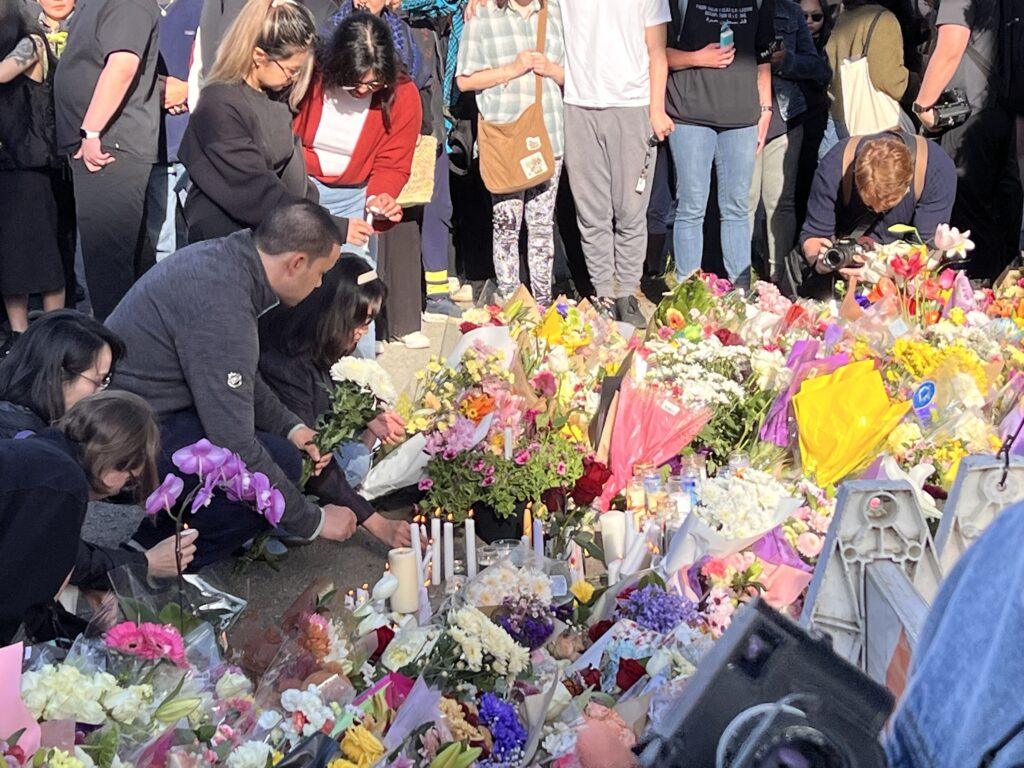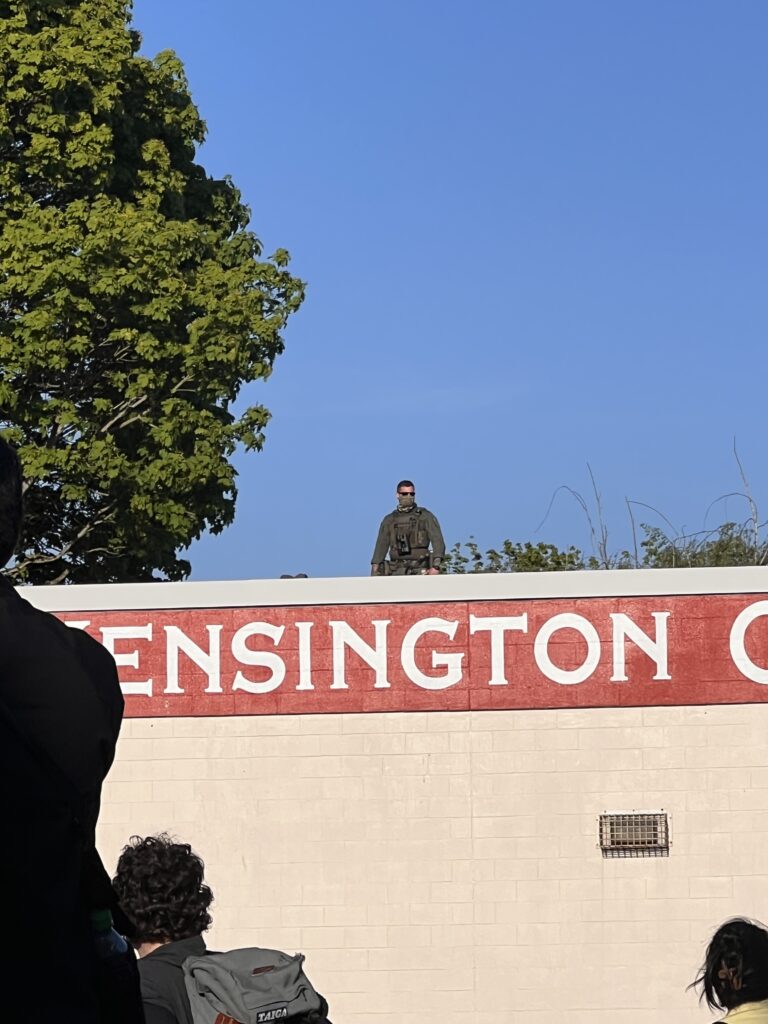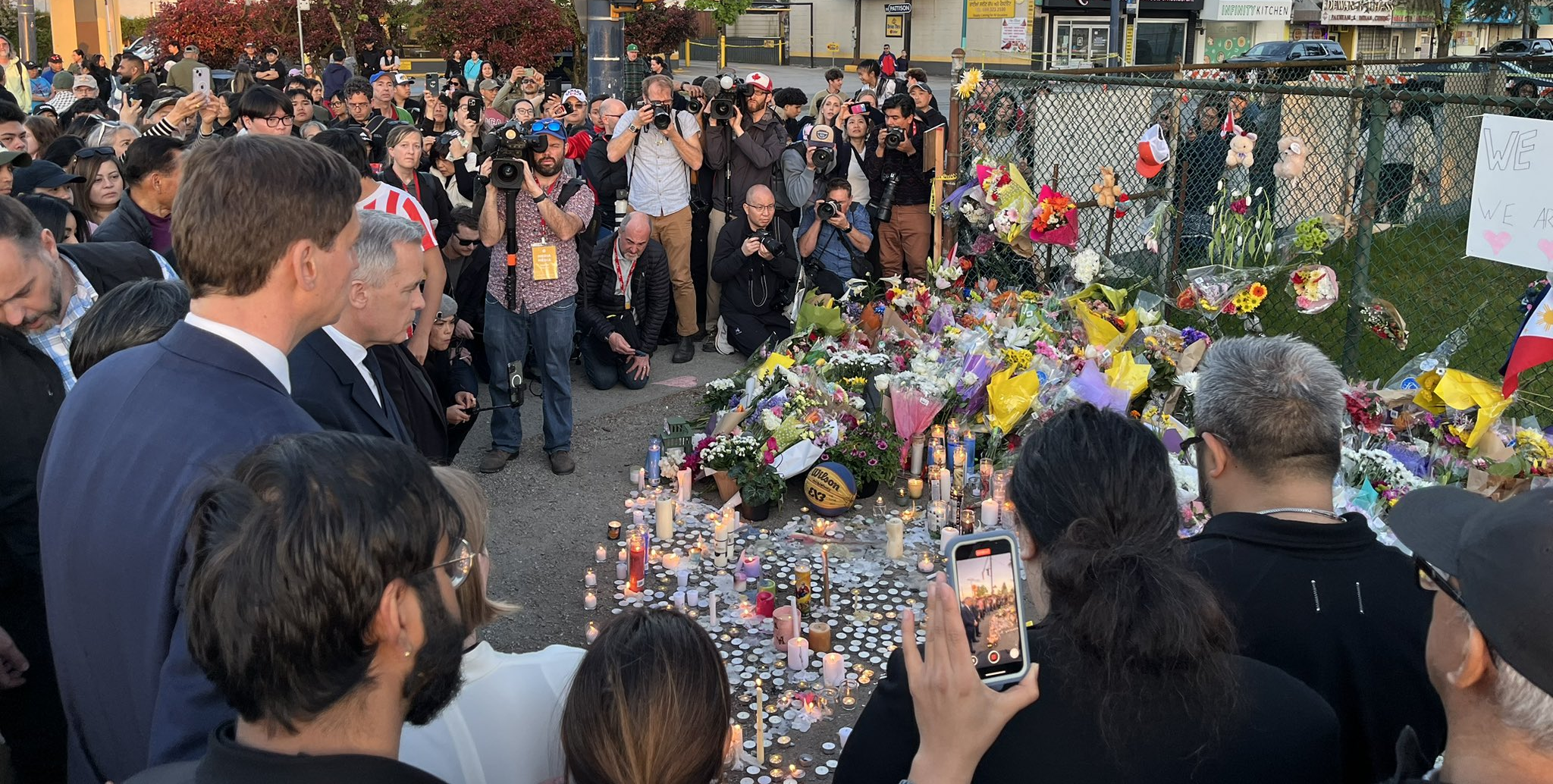Following a vehicle ramming that left 11 dead and dozens injured at a Filipino festival in Vancouver on April 26, organizers say that the community, and not the state, has responded to support mourners in the aftermath of the attack.
On April 27, the day following the Lapu-Lapu Day block party, politicians from all levels of government used community vigils as podiums to boost their political careers and deflect blame upon an isolated incident of "mental health" for the tragedy. Trailed by camera crews, they announced investigations, increased security budgets and unrealistic promises that this will never happen again.
Meanwhile, Filipino community organizations used their limited time and resources to put together dozens of events across the country so that their people could mourn together.
"I think the unfortunate reality is we know that we live in a world where crises are becoming the norm." says Kevin Quicho, the chairperson of Anakbayan BC, representing the Filipino youth organization that helped organize the vigils. "The question is not just how do we prevent the harm, but how do we build a world where people actually have the time to care and support each other when things like this do come up?"
Quicho is skeptical of the motives and the measures being put forward by politicians in the wake of the horrific incident. "Politicians are showing up to our vigils and using it as an opportunity to push their political platform. Both Carney and [Vancouver Mayor] Ken Sim came to our vigils the day after. They just came for their staged photo ops and barely engaged and talked with the community," he told The North Star.
Few, if any, of these politicians have said much about the living conditions of Filipinos working and studying in Canada or proposed any changes that would allow one of Canada's most exploited national minorities to grieve collectively. Filipinos working in Canada are often overqualified and underpaid for the work they do, are victims of wage theft and abuse at the hands of their employers at rates much higher than the average Canadian workers, and are frequently subjects of labour trafficking schemes in Canada.

Quicho explained how Lapu-Lapu Day holds immense importance for working class Filipinos: "It's important for us to remember that we come from people who didn't just keep their head down, we actually chose to stand up and fight back."
Lapu-Lapu is the name of the first national hero of the Philippines, who led his people in the 1521 Battle of Mactan to defeat the Spanish colonial forces of Magellan. "For Filipinos in the diaspora, the migrant workers and international students especially, that history really does matter," says Quicho.
"[The festival] was a rare moment where working-class and migrant workers—the caregivers, the janitors, the nurses, the students who rarely get a day off—could have the opportunity to be in community and feel like they're at home in a foreign land," he said.
Quicho recounted that, immediately following the attack, "it was community members that stood up and attended to those who were in need and provided things like CPR. It was also the workers, like the vendors, nurses and emergency response workers who stood up immediately to help people who were struck."
On May 16, the City of Vancouver and the Vancouver Police Department (VPD) released a preliminary report on their investigation which absolved both institutions of any responsibility for the deaths and injuries.
"Immediately after the tragedy, it felt like the VPD was trying to deflect blame. They were trying to like paint this as simply a mental health crisis for a single individual," said Quicho.

At another press conference on May 16, the VPD announced it had spent $410,000 on sixteen mobile vehicle barriers. The City of Toronto has also since approved $750,000 to "boost security" at festivals.
"It feels like this is being used to call for more funds for the police, but as marginalized communities, we know all that means is more repression." Quicho noted that the police often harass Anakbayan BC members during political events and connected this experience to the repression faced by activists in the Philippines.
He recounts how the period of martial law under the dictator Ferdinand Marcos and more recent regimes, like those of Rodrigo Duterte and Ferdinand "Bongbong" Marcos Jr., illustrate the violent history of the military and police in the Philippines.
Police budget increases and task forces that are created to repress democratic movements have only increased the prevalence of surveillance, extrajudicial killings and human rights violations in the Philippines. Quicho explains that this "creates a climate of fear that is the antithesis of communities coming together."
The Anakbayan BC chairperson talked about the systemic policies that have prevented many Filipinos from healing in the wake of the tragedy:
"It's because of the fact that the Philippines has their labour export policy and the Canadian government relies on this inflow of precarious workers that these people are put in such precarious jobs where they rarely have time off. It was the workers who suffered the most during times of tragedy."
Quicho gave the example of one of their members who was at the Lapu-Lapu Day event and barely had any time or space to grieve because they were busy juggling midterm exams, their job, as well as union organizing at an elite country club frequented by Vancouver's mayor where, before their most recent strike, 95% of the staff made below a living wage.
He noted that the governments of both Canada and the Philippines are slashing funding to social services and remarked on the significant impact of this austerity.
"Here in Canada, for example, the budget cuts that happened earlier this year meant that a lot of immigration settlement services for Filipino communities here in Vancouver are being cut. Many of these services would have provided community and spaces for the grieving migrants."
"We participate a lot in the neighbourhood houses, like at Collingwood Neighbourhood House. It's a place where a lot of the marginalized youth would go after school to be in community. And because of those budget cuts, they're having less of those opportunities to do so. So, I think this is really important in this time for organizations like us to step in to support these youth essentially in this moment. And that's what we're planning to do."


